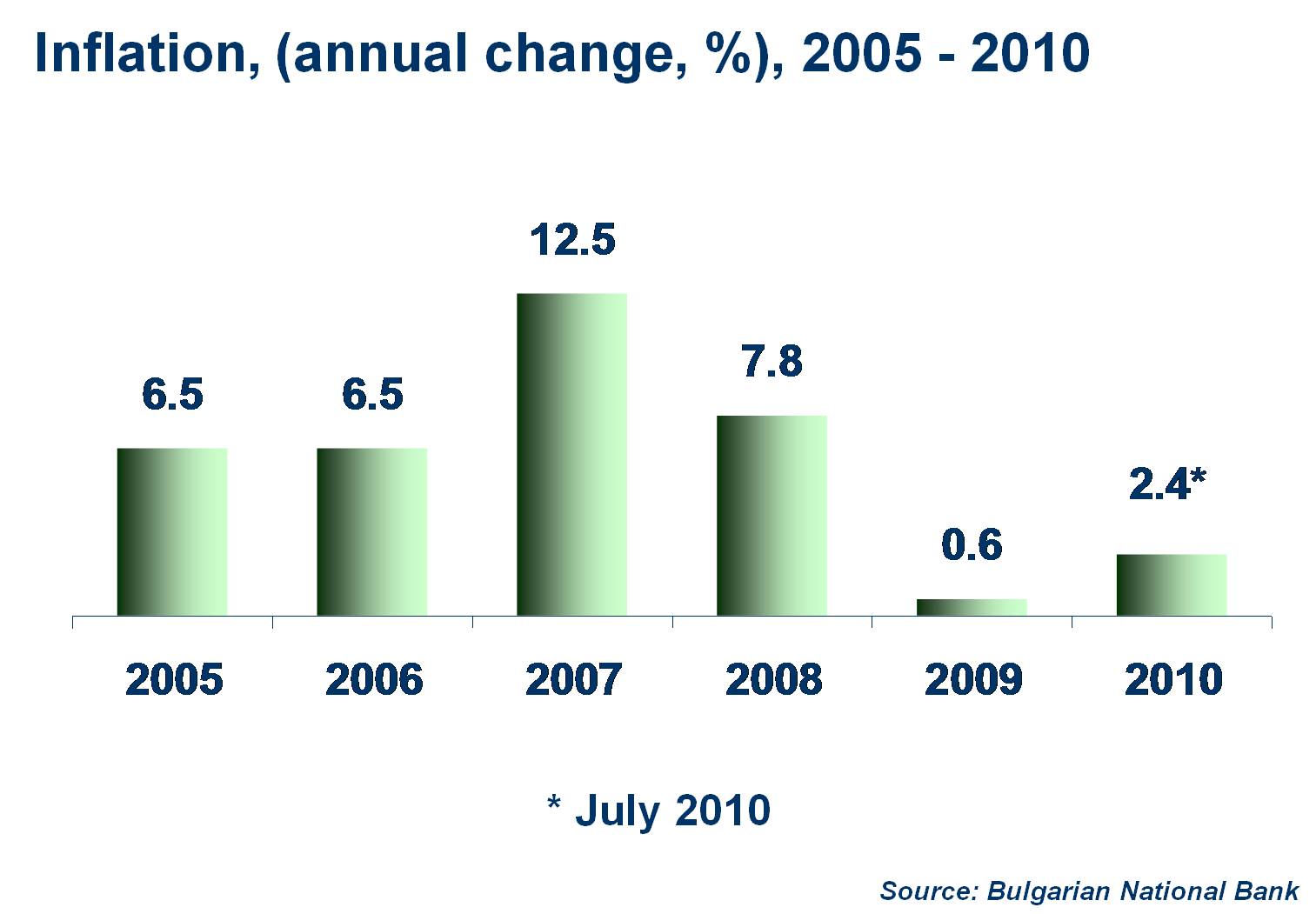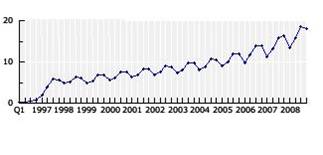Economy development
 |
Bulgaria initiated a process of radical economic reforms. It was possible thanks to the International Monetary Fund support of credits for carrying out the reforms at commitment of the country to implement specific changes and transformations in the economy. The reforms were supposed to stop inflation and economic collapse, stabilization of currency and development of the private sector. The large-scale program was a success and the National Gross Product increased by 1.8% in 1994 for the first time in ten years. An agreement with the London Club creditors was reached in 1994, and it resulted in a partial reduction of foreign debt.
However, a series of factors such as the slowdown of the planned structural reforms and suspension of IMF financing as the consequence, limitation of privatization processes, postponed but painful outcomes of the loss of traditional markets of the former Comecon organization lead to another crisis after two years of growth. The crisis took place in 1996 – 1997 and was characteristic of a dramatic drop of the National Gross Product and outbreak of hyperinflation.
Chart. Inflation in Bulgaria in 2005 - 2010

Coming out of the difficult economic situation of the second half of the 1990s was possible thanks to entering another agreement with the IMF at the beginning of 1997, which introduced a stabilizing currency board. The outcomes became effective in the second half of 1997. The next years were the time of progressing stabilization and economic growth. The preparations to accessing the European Union of purely economic and institutional character had an important positive effect on transformations of the Bulgarian economy.
Chart. GDP in Bulgaria in 1997-2008 in mld Lev.







